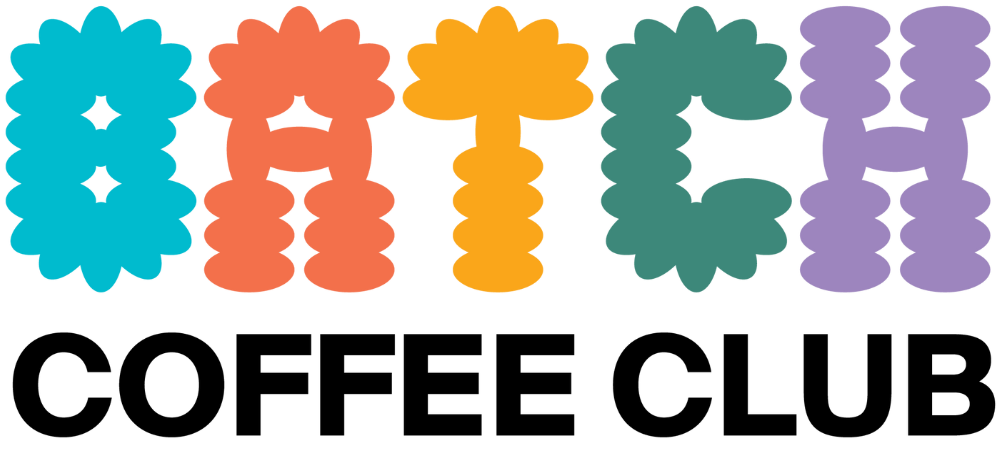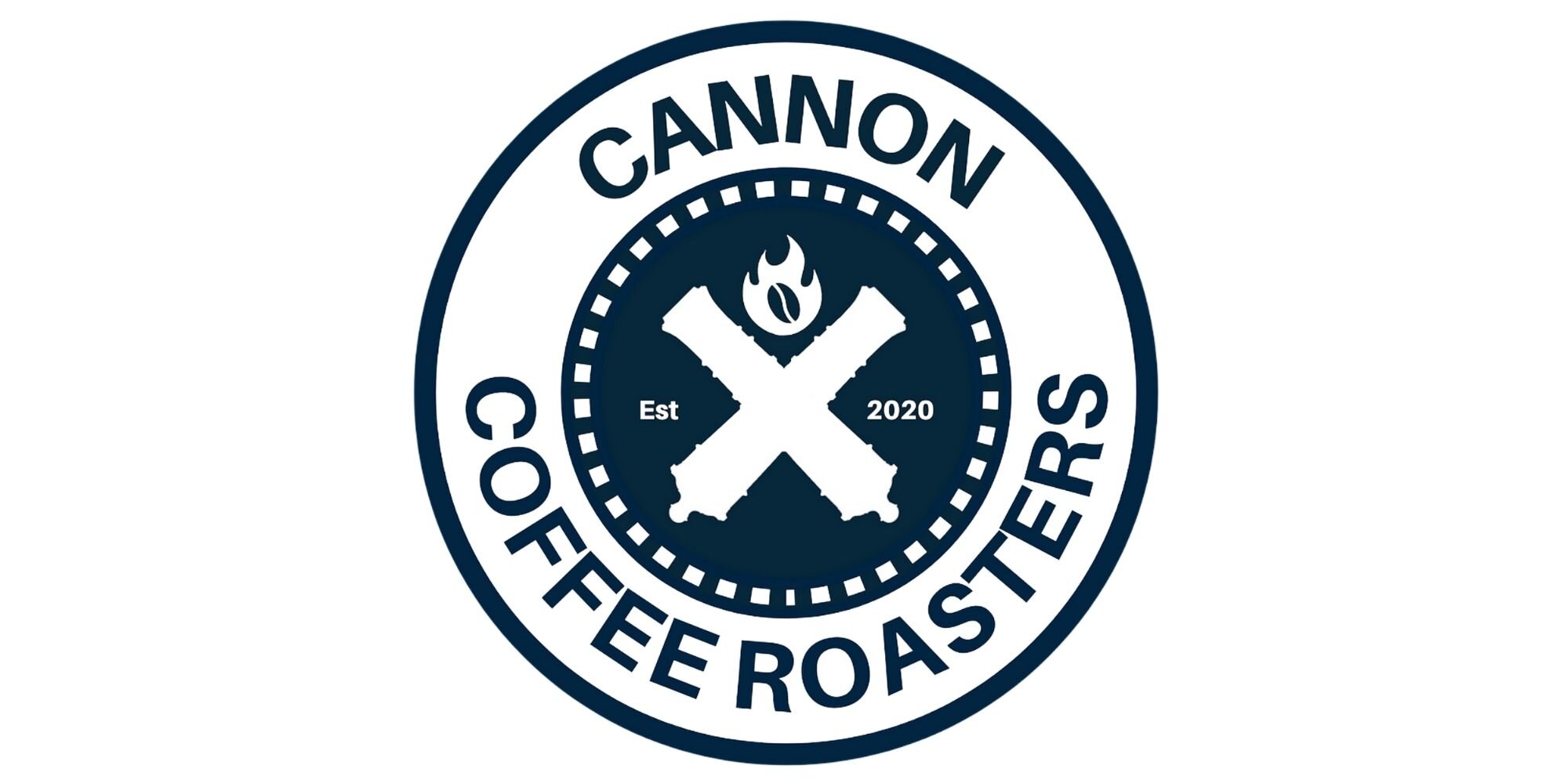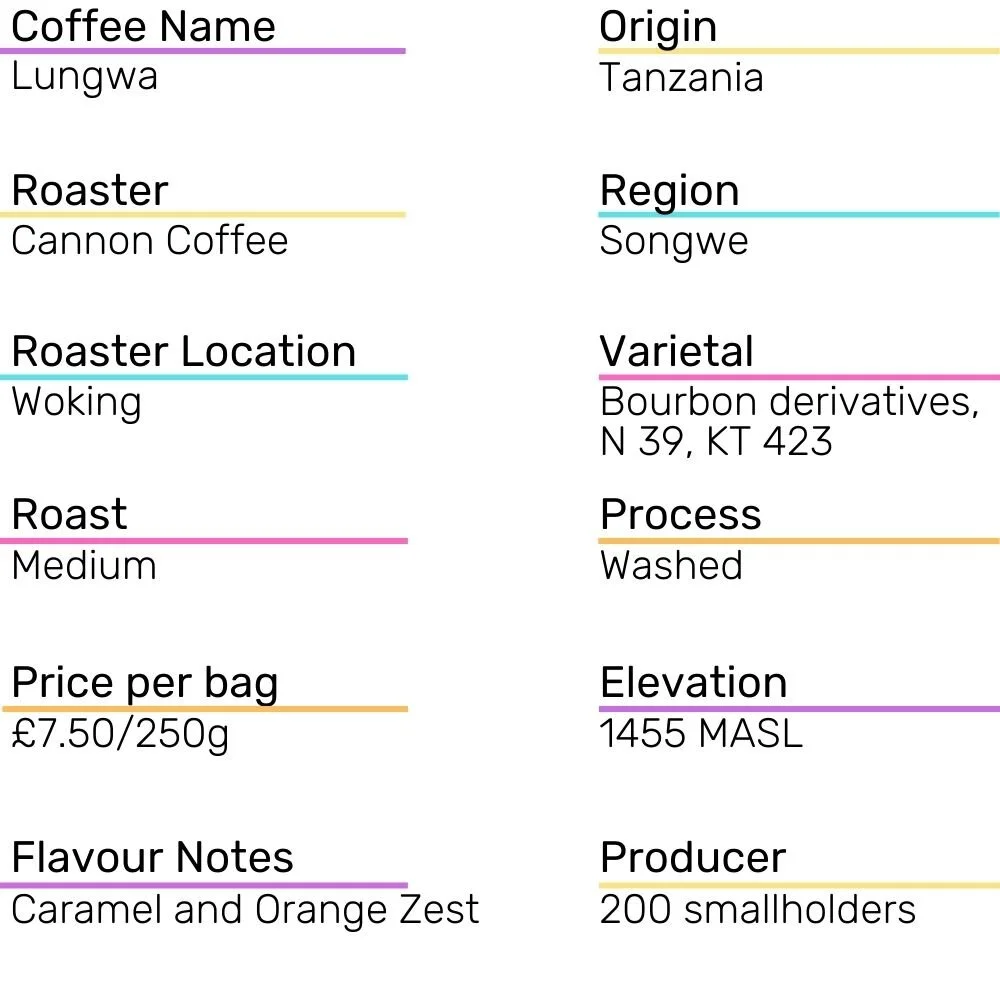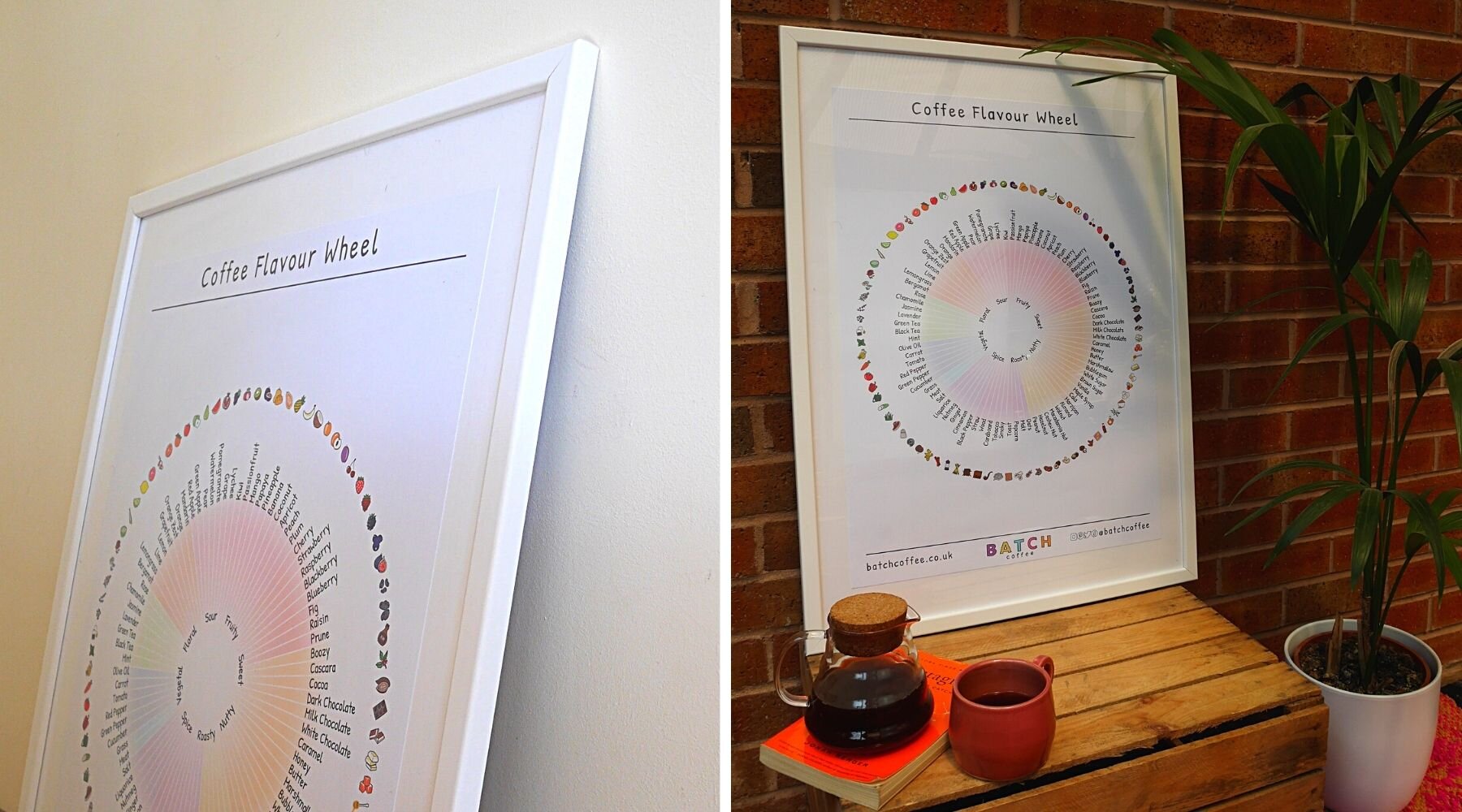Cannon Coffee Roasters
Cannon coffee roasters are the new and exciting roastery in Woking.
Their small batch roastery ensures that their coffee is expertly roasted with a huge degree of control.
Although Cannon are pretty new to the scene, the team behind the flame have been roasting coffee for over 5 years so they know what they are doing.
The coffees that Cannon showcase are all sourced with a focus on traceability and sustainability through direct trade relationships with producers.
Cannon are not afraid to feature origins that are slightly unusual, although they also offer single origin coffees from the usual big players in the speciality coffee like Colombia and Brazil, their Menu at the time of writing consisted of a Costa Rican, a Tanzanian and a Papua New Guinean.
Questions With The Roaster
What inspired you to start roasting coffee and how did it all begin?
Chris and I have always had a massive love for the coffee industry as a whole. Seeing it develop over the past 10 years and Speciality coffee having this spotlight on it has been amazing to see.
Personally, my background is in digital marketing, but marketing a product which you can not relate to has always been a challenge for me. Coffee is one of the biggest industries in the world and with new information, brewing methods and techniques and a push towards a more sustainable industry immediately invoked my passion.
Chris has been involved in the speciality market for around 8 years and there is not a coffee question yet he has not been able to answer. From running a coffee shop to espresso engineer to head of coffee, he covers pretty much all the industry bases!
It was the combination of the above that made us take the plunge to run our own roastery and we have loved every moment so far!
What sets Cannon apart from the rest?
What I feel sets us apart from the rest is our order process and sustainability values. In terms of our ordering and fulfilment processes, we do not keep any roasted coffee in stock. All of our orders are roasted the same day they are ordered and sent out the day of roast.
This is to ensure that all of our customers receive the freshest coffee possible and regarding the degassing, we allow them to choose how long this period should be as we feel all opinions on the matter are subjective.
Many roasters in the UK have a strong focus on sustainability which is great, but sometimes it is quite difficult to know what is strong values and what is marketing. All of our packaging is either fully recyclable or compostable and this in itself increases our costs dramatically.
We also source the majority of our coffees from the farms or cooperatives to add more to the traceability of the coffees. This traceability allows us to make sure that our coffee is ethical as well as sustainable.
What is the biggest challenge you have faced so far, how has it been launching a business during COVID?
One of our biggest challenges so far has been our packaging. We initially were set to recyclable bags for our coffee. But soon after our first order, we discovered that in the UK the materials used for these bags are very difficult to recycle and are more often than not end up in landfill. After this we moved to Compostable bags which posed several weeks of issues before finding a supplier which made high quality compostable bags.
Launching a business during COVID has been an issue for most young businesses. We first found it wasn’t an issue at all since it gave us no excuse but to put all of our time and energy into Cannon Coffee. However, the main issue it did pose was a lack of physical presence we could give. We wanted to immediately hit the markets and go to events however during 2020 this wasn’t possible.
What does the future have in store for Cannon?
We are hugely excited for the future of Cannon. For the next few months looking at expanding our range of coffees to include several new origins to be able to offer coffees to suit all palates. We are soon to have our new larger roaster built and ready to accommodate more commercial customers so that our coffee can be tried in coffee shops all around the country.
Lastly do you have any favourite coffee roasters in the UK? And any coffee roasters that have inspired you?
We have several roasters that we have been inspired by. To name a few:
Horsham Coffee Roasters – Horsham have a great range of coffees and the owner being a Q Grader just shows there passion. There transparency in business is also hugely admirable.
Yallah Coffee Roasters – Yallah have some brilliant coffees and we love their fully paper packaging. Also, very jealous of their St Ives coffee shop. Beautiful spot and I’m sure their roasters spend half the day roasting, half the day surfing.
Latest Batch Coffee Reviews
The Origin
The Lungwa Cofffee from Cannon coffee roasters comes from the Songwe region of Tanzania.
The coffee is produced by a coop society that has around 200 active members
The farmer members deliver their coffee in cherry form to the washing station that the AMCOS operates, where the seeds are depulped the same day they're received. The coffee is rinsed and given a 36-hour fermentation in tanks and then washed clean of mucilage.
After the fermentation process, the coffee is soaked underwater, then washed again before being dried on raised beds for 9–14 days. During the drying period, the coffee is covered with tarps in the middle of the day, when the sun is directly overhead.
The history of Tanzanian coffee dates back to the 16th century, when Robusta coffee would have been imported from Ethiopia.
Photo: Coffee Farming AMCOS - InterAmerican Coffee
Coffee was initially chewed like tobacco after it was boiled and smoked. Nowadays over 90% of the coffee that is produced in Tanzania is grown by smallholder coffee farmers that use a cooperative washing station, however some of the best traceable coffees come from estates that have their own processing facilities.
Tanzanian coffee can differ fairly radically depending on where the coffee was grown. A coffee originating from the Kilimanjaro region can exhibit floral and subtle complexities that aren’t too dissimilar to a washed Ethiopian. While a coffee grown in the Mbeya region can possess a more full bodied richer flavour.
The Review


















